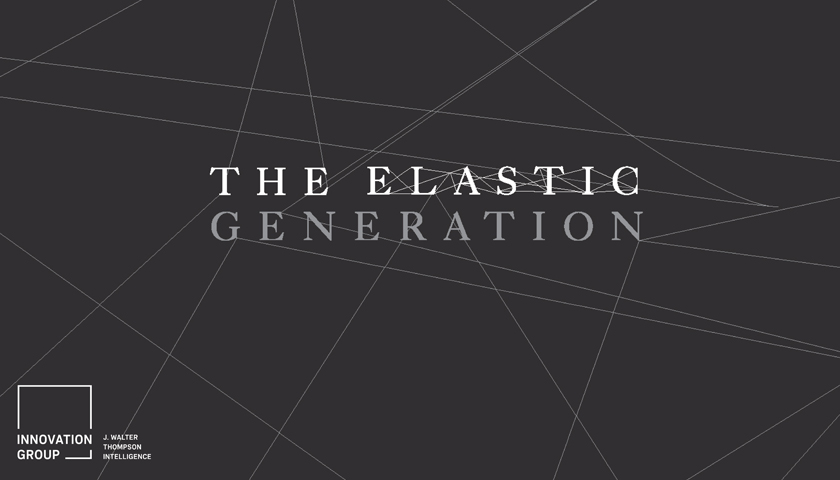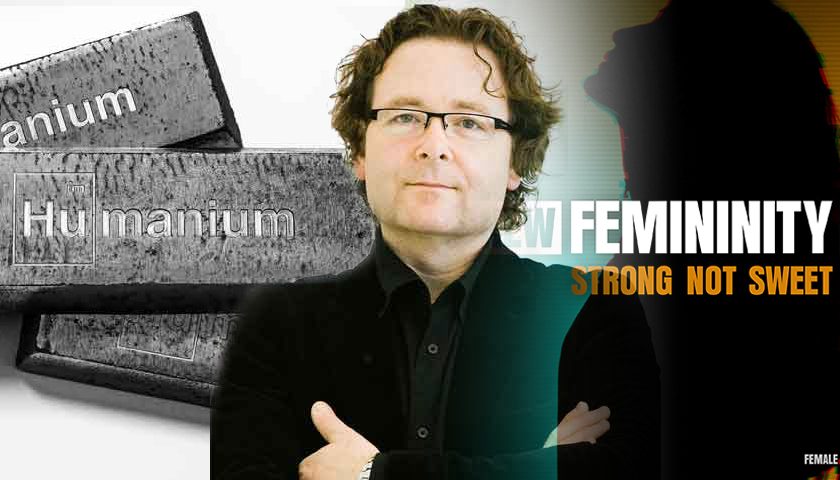A new report into women aged between 53 and 72 from the J. Walter Thompson London Innovation Group shows that 72% “don’t pay attention to advertising” while 91% wish advertisers would treat them like people and not stereotypes.
And with 78% of 50+ women* saying they control the purchase decisions in their households and the over 50s in general accounting for half of consumer spending in the UK** – 376 billion on discretionary items in 2016 – brands are missing out on huge potential opportunities.
Called “Elastic Generation: The Female Edit” the report is the latest publication in the agency’s long-running Elastic Generation research series, but this time focusses solely on women and incorporates findings from the Female Tribes Women’s Index study. As well as delivering deep-dive analysis of the market the study introduces trends that reflect the multi-faceted nature of Elastic Generation women and gives advice for brands engaging with them.
Overall ‘Elastic Women’ enjoy life more now they are older (61%), say they are more outspoken than they used to be (68%) and are making more effort to do what they always dreamed of doing (57%).
Three main conclusions from the report are:
- Age is no longer a useful indicator of how older women are living. Think beyond the demographics and find out what drives them and why.
- Many women like to see older faces in brand communications, but ensure that depictions are authentic and that all customer touchpoints reflect the same attitude.
- Ditch the outdated stereotypes and harness data to drive deeper, better, more personal engagement. Think about what unites generations, not what divides them.
Marie Stafford, The European Director at the Innovation Group, says:“Women in their 50s, 60s and early 70s are active, engaged and involved. They are pillars of family, community and society and nothing they do is motivated by their age. So it’s a bitter irony that more than half feel that this makes them invisible to society and all brands want to talk to them about is their mortality and physical decline. These women are actually the foundation of our most dominant consumer force.”
Rachel Pashley, Head of Female Tribes Consulting, said:“The Women’s Index told us that this age group are independent, entrepreneurial, sexual beings: a million miles from the beige fleece wearing grandmas we imagine them to be. Now, The Elastic Generation: The Female Edit gives us a deeper understanding of what motivates them, delivers insights into understanding them and pointing to the enormous potential for innovation for the brands that welcome them. It’s a business opportunity that can’t be ignored.”
There are 12 trends covered in the report including ‘The New Power Consumer’, ‘Wild at Heart’ and ‘Returners and Encorepreneurs’. Three of them are broken down below;
Booming Tech
73% of Elastic women say they hate the way their generation is patronised when it comes to technology, 55% believe their generation’s needs are not considered when technology is designed and 78% express no desire to buy technology that is especially designed for older people. Some areas brands should take into account include:
- Forget the digital native myth – these women were there in tech’s infancy too.
- Create technology that it is simple and intuitive – everyone will thank you for it, not just these women.
- Design tech solutions that save time, boost convenience or solve problems for ‘Elastic Women’ and they will adopt them with enthusiasm.
The New Style Leaders
In the New Style Leaders 69% of women surveyed think the fashion industry ignores people their age while 82% think that the clothes that are aimed at them are “way too old-fashioned”. A further 86% believe that style should not be defined by age. To combat this clients can:
- Shift the narrative & celebrate the self-knowledge that comes with age.
- Create clothes that lift her confidence, ditch the beige and don’t try to make her invisible.
- Get real, understand how older bodies are different and create designs that flatter them.
Ageless Retail
53% say they enjoy splashing out on things for themselves nowadays, 54% say their favourite shop is good because it welcomes people of all ages and sizes and a massive 94% like online shopping because it gives them the ability to quickly compare prices.
- At the absolute minimum, make ‘Elastic Women’feel welcome in store. ‘Elastic women’ want a relaxedbrowsing experience with no pressure to buy.
- Add experiential elements, creating a ‘third space’to appeal to women of all ages.
- Adopt an age-agnostic approach.
Methodology
The research methodology is reported by JWT as follows:
‘Elastic Generation: The Female Edit’ is a macro trend report that focuses on women aged 53-72. It follows on from our original research that was published in 2015. The research comprised several methodologies and covered the period May 2017 to December 2017. In addition to extensive desk research, we conducted a quantitative survey using SONAR™, Walter Thompson London’s (JWT) proprietary online tool. In May 2017, we surveyed 248 women aged 53-72. We also surveyed 276 men for comparison. We also used data from the Women’s Index Study, a global quantitative survey speaking to a nationally representative sample of women aged 17-70 years. The research covered 19 countries but for the purpose of this report we’ve just used UK data. Additionally, we had 24 respondents take part in a week-long online community answering questions about their own behaviours, attitudes, and lifestyles. Finally, we conducted in-depth interviews with experts and influencers across sectors including beauty, fashion, wellness, and art.
Please note that all data was correct and up to date at the time of writing in December 2017.
Links
https://www.jwtintelligence.com/the-innovation-group/
https://ethicalmarketingnews.com/interview-rachel-pashley-female-tribes-consulting



